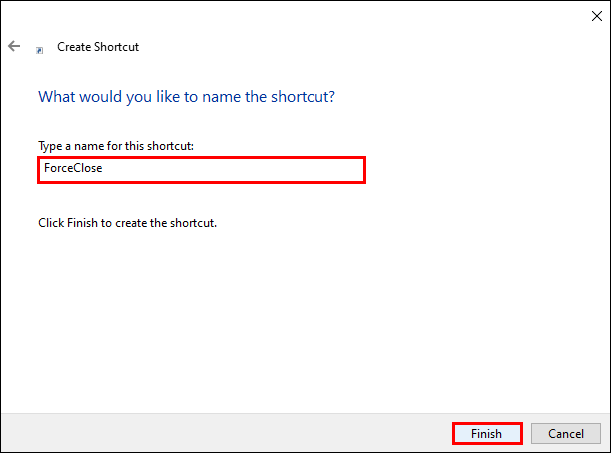It’s safe to say that most of us have had the experience of our computer programs freezing. We click, yet nothing happens other than seeing “Not Responding” on our screens. Unresponsive programs are all too common and can lead to unproductive time and frustration.
The usual fix is to force close the program using the task manager. But there are other ways to force an unresponsive program to quit or close. In this article, we’ll explore other options without relying on the task manager.
How to Force Quit on Windows Without Task Manager
There are a few ways to get a frozen program or window to force quit. If you’ve tried to close it using the task manager but were unsuccessful, we have a few suggestions to accomplish this goal. Techniques vary from using an alternative to the task manager or running commands. Our last suggestion is to reboot your PC, but this isn’t always the best method. To learn more, continue reading.
Try Using ALT + F4
As an alternative to using the task manager to kill a program, you can try holding down the “ALT” key and the F4 function key at the same time. “ALT + F4” sends a polite request to close a program and will give the program time to respond. It uses the Windows function “WM_CLOSE,” a request to close the current window. The program’s termination may not be immediate, so give the command a few moments before trying another option.
Use the Taskkill Command
Another alternative to using the task manager to close an unresponsive program is the Taskkill command. It’s easier to set it up as a shortcut to avoid the need to run the Taskkill command using the command line window each time you want to use it. To learn how to do this, follow these steps:
- Right-click on your desktop, select “New,” and then “Shortcut.”

- In the window, type this command:
taskkill /f /fi “status eq not responding”
- Name the shortcut and hit “Finish.”

- Save the shortcut on your desktop for easy access.
Reboot Your Computer
Although not the best solution, rebooting your computer will close any frozen programs. However, you’ll have to disconnect the power supply to your computer if your entire screen is frozen and you cannot get to the restart function.
If you can’t get to the restart option, unplug the power supply and wait a few minutes before plugging it back in and restarting your computer. It’s important to note that your changes won’t be saved if you perform a reboot to kill any unresponsive programs.
Force Close Outlook Without Task Manager
Occasionally, Outlook may freeze and become unresponsive, leading to a frustrating experience. There are, however, ways to force close the program if the task manager is unavailable or it was unsuccessful. You can reboot your computer, but you may want to save that as a last resort. Before restarting your computer, try one of the methods listed below.
The ALT + F4 Shortcut
One way to force close Outlook is to press down “ALT + F4” at the same time. This is a softer alternative to force quitting with the task manager. The “ALT + F4” command uses the Windows function “WM_CLOSE” request, which allows the stuck program time to close. You’ll need to wait a few moments as this method isn’t instantaneous.
Try the Taskkill Command
The Taskkill command is typically run using the command line window, but there’s a more efficient way to do so. You’ll have easier access to the command as a desktop shortcut. It’s a great time-saver, eliminating the need to open the command line window whenever you need to shut down a program. Here’s how to do it.
- On your desktop, right-click and select “New” and “Shortcut.”

- Type the following command:
taskkill /f /fi “status eq not responding”
- Give the shortcut a name, click “Finish,” and save it on your desktop.

Any programs that are frozen and not responding will be forced closed. You can also run the Taskkill command directly from the command line window and close only one program. Here’s how it’s done:
- Open the “Command Prompt.”

- Type in “
tasklist” to see all running processes on your computer.
- Under “Image Name,” locate the name of the program you want to force close.

- Once you have the name of the program, type in “
taskkill /IM outlook.exe”.
- Hit the “Enter” key.

This command is a passive request to close Outlook. If this method fails to work, you can modify the request by adding the “/F” argument to tell Taskkill that you want to close the program forcefully. The forced close command looks like “taskkill /IM outlook.exe /f”.
How to Force Close Valorant Without Task Manager
If your Valorant game has completely frozen, rebooting your computer isn’t recommended, although it is an option. Some gamers have reported that their game freezes the first time they play it, so this is not an uncommon event. Here’s how to safely force close Valorant and what to do after it closes.
- Hold down the “ALT + F4” keys at the same time.

- Once the game closes, reboot your computer.

- After rebooting, right-click on the Valorant icon and choose “Run as administrator.”

After using the shortcut, many gamers have reported that launching Valorant as an administrator after a reboot has successfully solved game freezes.
How to Force Close Excel Without Task Manager
Microsoft Excel is a powerful program, but many users have experienced it freezing more frequently than other programs. Unfortunately, sometimes the task manager is ineffective at force closing it.
As this article explains, you can try using the “ALT + F4” method to force close Excel. You can also reboot your computer if that method proves unsuccessful. Please note that you’ll lose any changes you’ve made to your spreadsheet before shutting down your computer. A reboot should only be used after you’ve exhausted other methods.
If Excel continues to freeze and become unresponsive, it may be a good idea to try and repair the Microsoft Office bundle. To do so, follow the instructions below:
- Click on the “Start” button and search “Control Panel.”

- Choose “Programs” and then “Uninstall a Program.”

- Right-click on “Microsoft Office” and select “Change.”

- Tap “Quick Repair” and then “Repair.”

After completing the repair, try relaunching Excel to see if the program still freezes. This repair method can eliminate the problem of Excel spreadsheets frequently becoming unresponsive.
Task Manager Isn’t the Only Way to Force Close a Frozen Program
We’ve all had the unpleasant experience of a stuck program. This unfortunate event is usually remedied by using the task manager, but sometimes it doesn’t work. Rebooting your computer is always an option, or you can use “ALT + F4” or Taskkill methods. Saving the Taskkill command as a desktop shortcut is a very effective alternative to using the task manager.
Have you had to force close a program without using the task manager? Did you use the methods discussed in this article? Let us know in the comments section below.
Disclaimer: Some pages on this site may include an affiliate link. This does not effect our editorial in any way.





















